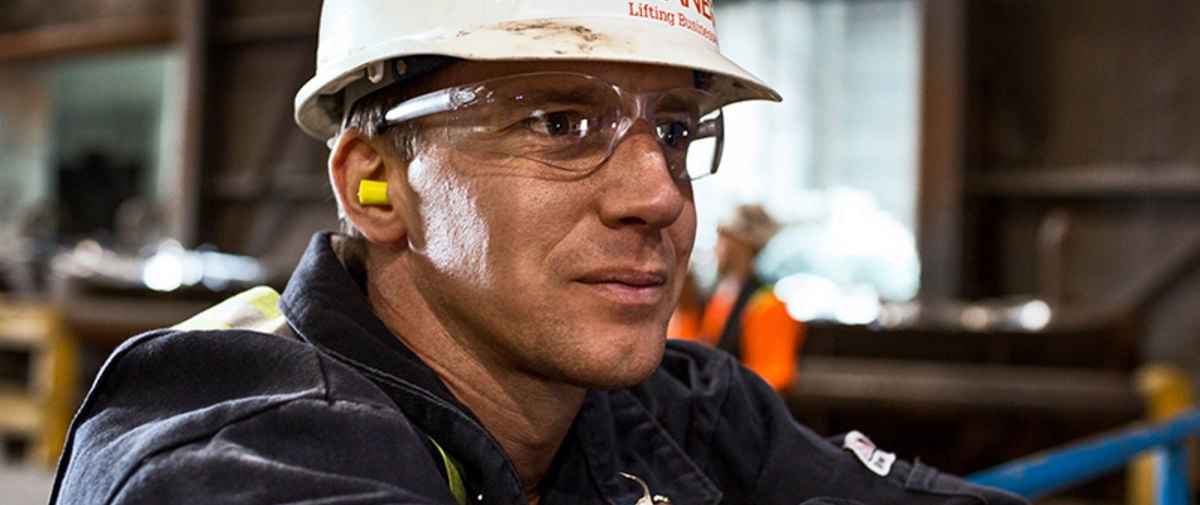The daily work life of a Konecranes crane technician calls for a wide range of skills and qualities, both technical and otherwise, which can contribute to a rewarding crane service career.
Over my nearly 15 years as a Konecranes technician, I’ve experienced the satisfaction that comes from solving customers’ crane operation problems and safely restoring their production. I also know that what I do each day has the potential to prevent people from encountering serious harm.
As in any job, a strong work ethic is required for success as a crane technician, not to mention a blend of mechanical and electrical expertise. Other necessary skills include:
Safety focus – Konecranes technicians approach every job with an emphasis on safety. Our cranes help our customers move, literally, tons of equipment. Safe operation of these cranes is of the utmost importance so that everyone at a customer’s site returns home safely at the end of every work day.
Before working on any crane system, Konecranes technicians complete a work risk assessment. This includes discussing with customers any identified safety issues, from the crane itself to conditions around the crane, like forklift traffic and surrounding production activity.
Problem solving – Every time a crane technician discusses a problem with the customer, their skill for problem solving kicks in. Learning how to leave no question unasked and how to tackle problems in a systematic way enables the technician to get a jump on solving the problem, which reduces equipment downtime while saving the customer money.
Communication – This involves talking with customers and providing them with an easily understood, written service report. After completing a job, the technician reviews the report with the customer, making sure everything about the job is understood before the customer signs off. The technician also informs the customer of any other problems detected during the service call, schedules follow-up appointments and calls to check-in after the service call to make certain the crane is working properly.
Relationship building – A successful crane service career is based on building trust and strong relationships with customers. Technicians accomplish this by showing up as promised, returning cranes to proper working order as quickly as possible and being honest, which includes owning up to mistakes and making everything right.
Flexibility – Being a crane technician is not a 9 to 5 job. You have to be available when a customer needs you. Some days that means starting as early as 4 a.m., while other days it means working late. Other times the tech may work in less-than-ideal environments. Through it all, a successful crane technician is flexible enough to deal with whatever is thrown their way.
Continual learning – Technology changes quickly, so learning is an ongoing process for crane technicians. Konecranes invests significantly in each of its technicians, keeping them up-to-date by offering a wide range of basic, advanced and specialized training through the Konecranes Training Institute.
